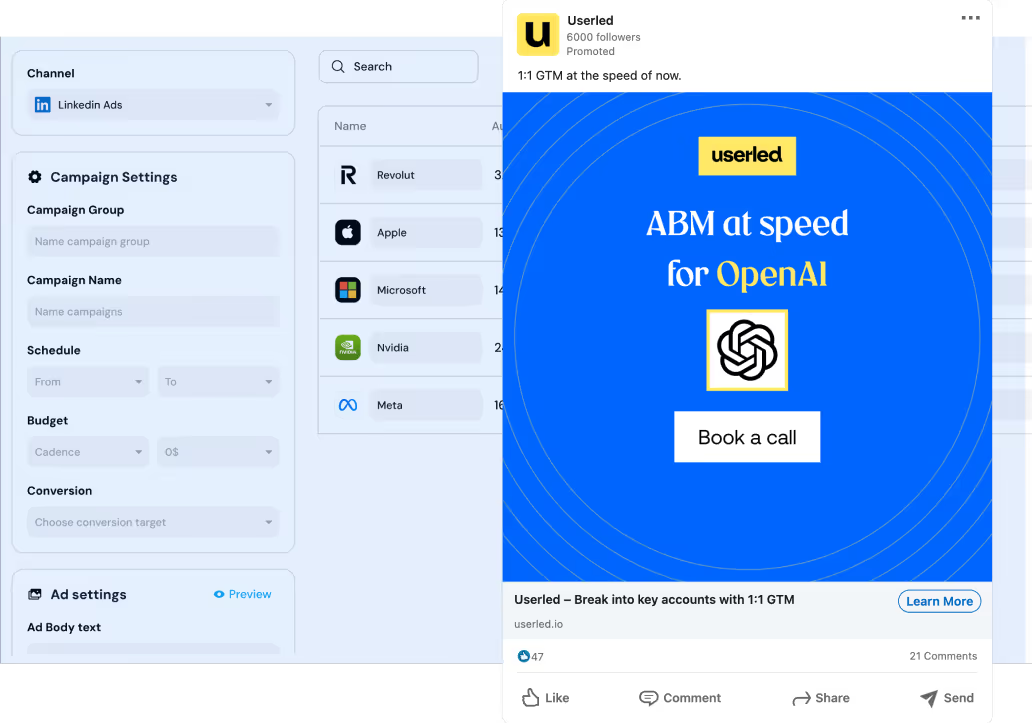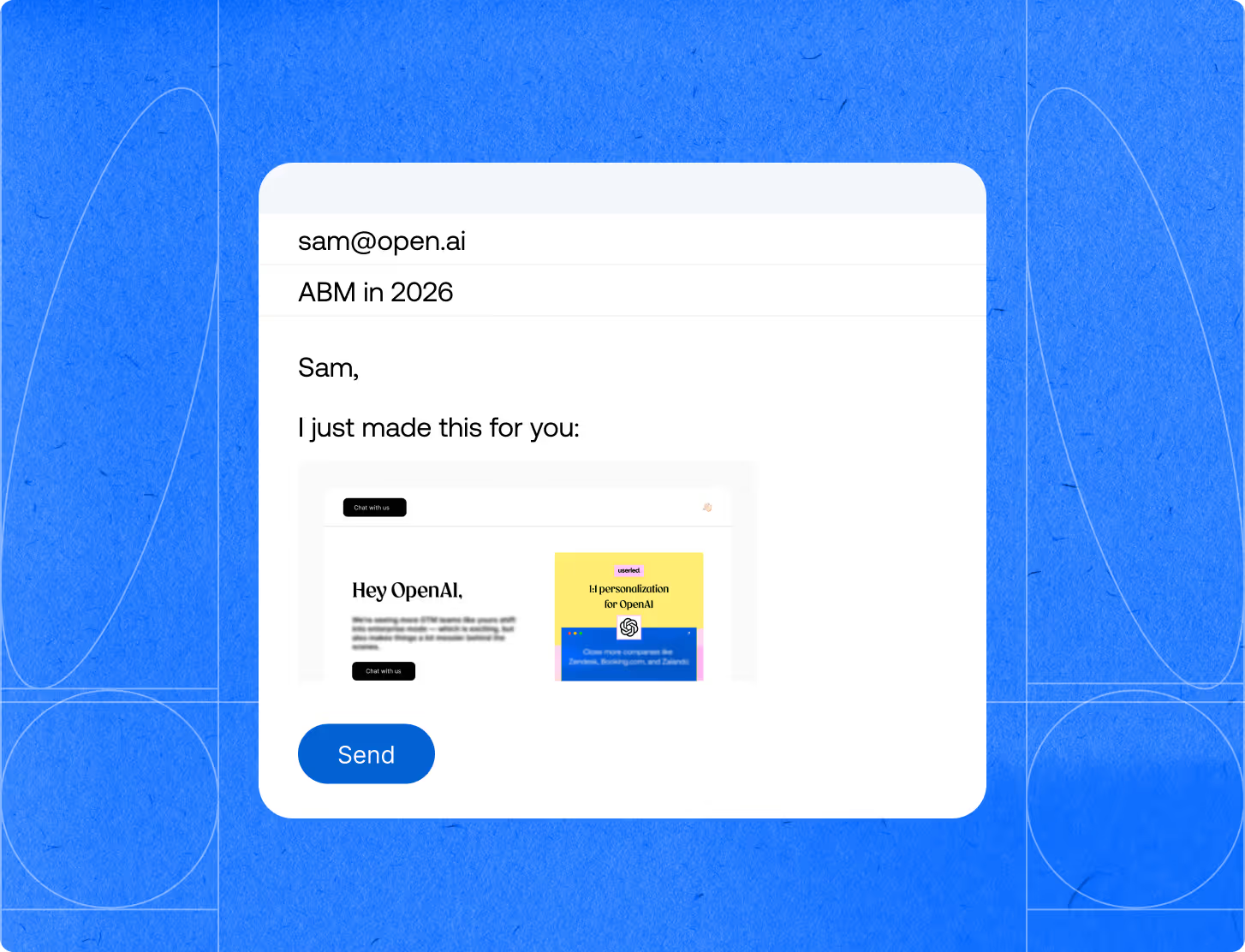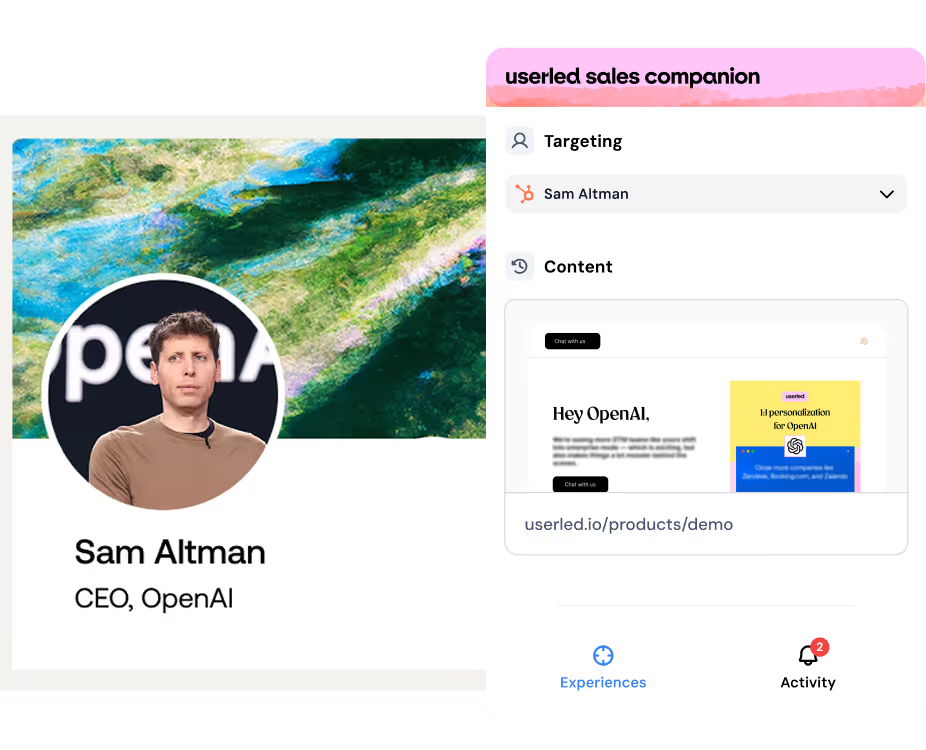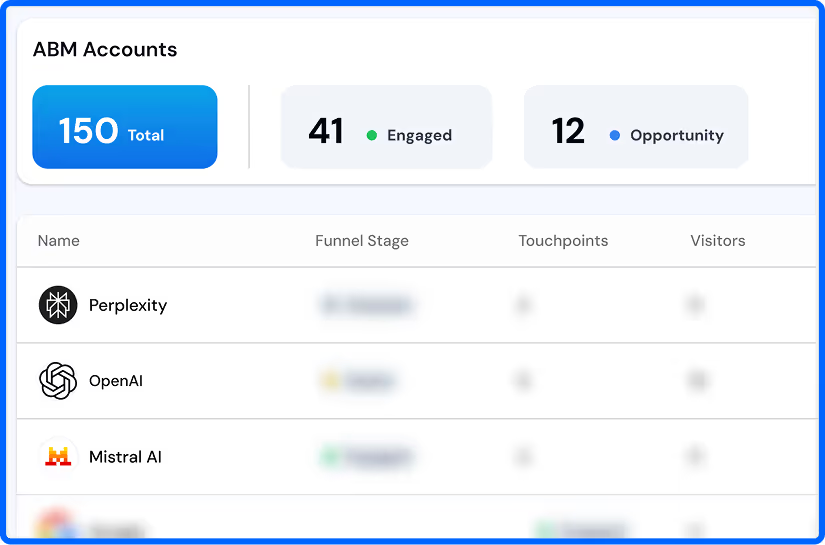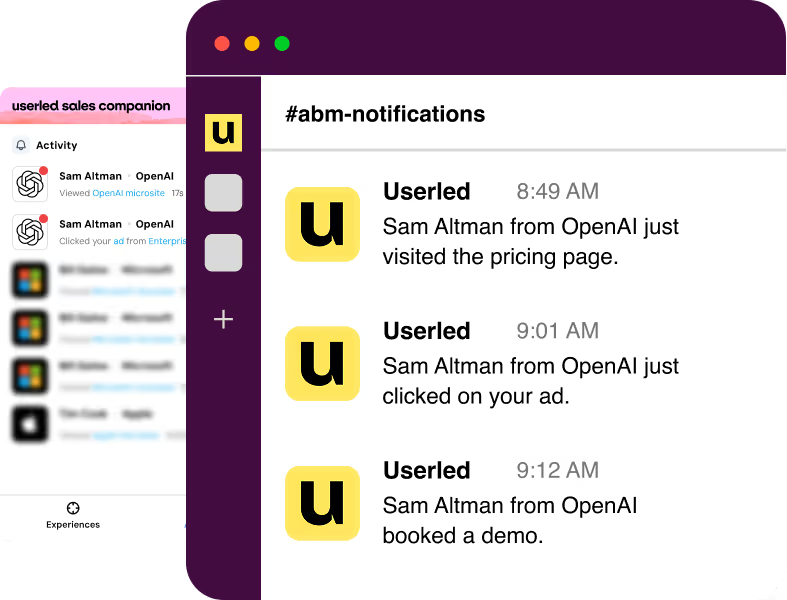The AI platform
for modern ABM
From content generation to activation, transform campaigns into automated, on-brand experiences that win more accounts.


Campaigns that practically write themselves
With assisted workflows, templates, no-code editing, and connectors, Userled simplifies every step, so you can launch smarter, faster campaigns.
Define templates, key messages, languages, and creative direction.
Personalize content, visuals, and edit copy modules on the fly.
Reach your dream accounts
Keep 1:1 experiences front of mind with tools that ensure you're seen and heard across channels.
Turn engagement into momentum
Give teams clear views of activity, progress, and buyer interest so they can act with purpose every time.
Your tools, our workflow
Connect Userled to all your existing tools, no custom setup required.
Don’t just take our word for it
Hear how other leading brands are transforming their GTM activities with Userled AI.
.svg)

-modified.webp)























.svg)

-modified.webp)























FAQs
We use Fingerprinting Technology. This enables us to capture contact information, consumer data, and interactivity without cookies. Additionally, we offer an Identity Layer as part of our solution to uncover the identity of your website visitors across domains.
Our Fingerprinting Technology and Identity Layer solidify our position in the market by enabling you to uncover ICP accounts and monitor their activity across all your domains and GTM stack, empowering your sales marketing processes with end-to-end visibility.
To uncover identities, we rely on a few different data sources.
- Tracking links: Identify targets by adding tracking links to outbound and marketing campaigns.
- Audience integrations: Userled integrates with audience data sources such as your CRM to enable you to create tracked links for individual contacts and accounts in your CRM.
- IP Reveal: tools like Clearbit and 6Sense match IP addresses to Company profiles. Userled offers 10K website visits uncovered via Clearbit partnerships for free. It then integrates with other 3rd party vendors depending on the customer’s stack.
- HubSpot’s Tracking Pixel: can match a visitor to a Hubspot Contact once that visitor submits their email via a form or clicks on a tracking link in an email.
- Form submissions: can be tracked to associate visitors based on form submission details.
- CDPs: tools like Segment can match visitors to product profiles within the product (after signup).
Once a visitor’s identity is uncovered, their identity is tied to their associated identities across your CRM and GTM stack to create a unified profile and monitor their activity across domains, devices, and throughout your GTM stack.
Userled’s proprietary AI pulls content directly from the target account’s website to create personalized content. This includes style, tone of voice, logos, and any other branding that is uniquely theirs. It’s your go-to marketing tool for 1:1 ABM campaigns.
Userled has a large, growing library of integrations, and works alongside most enterprise-grade CRMs, communication tools, and ABM platforms. Above all else, Userled ensures up-to-date tracking of your key target accounts, at both individual and account-level, ensuring your marketing and sales teams have the most accurate record of information and behavioral data for customer experience personalization.
With the Enrich CRM capability, Userled automatically synchronises with LinkedIn campaigns and your CRM to ensure you always have up-to-date customer data and behavioral data. This happens daily at 3am.
HubSpot, Salesforce, Slack, 6Sense – there’s a growing list of integrations. Userled works alongside most of the tools you already use, and if it’s not on the list, speak to us and we’ll make it compatible. Check out our integrations here.
Absolutely. When you create a new experience in Userled, the built-in wizard will ask your preference. You can upload your own templates and use our generative AI capabilities for copy creation.
You can find the latest platform updates here.

















